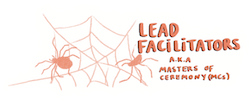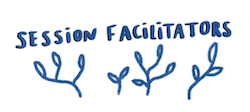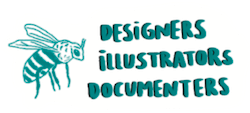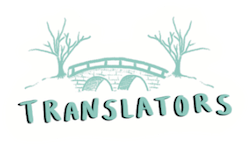
Roles in a nutshell
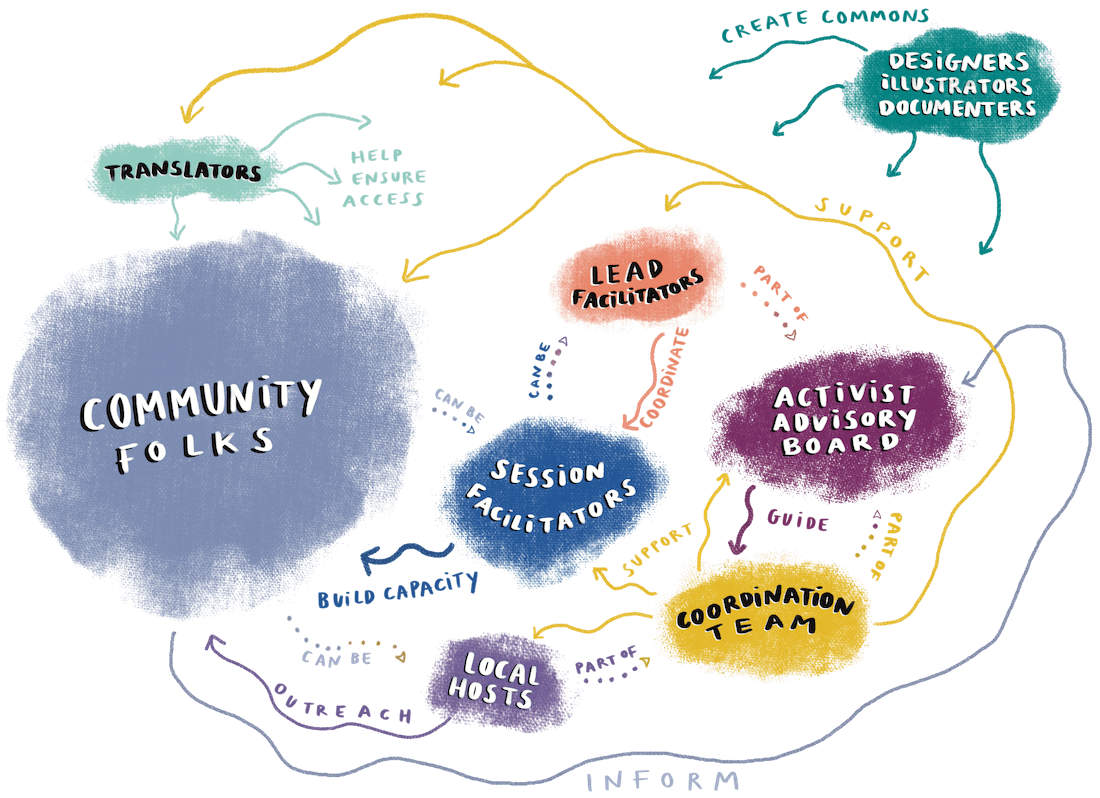
CommsLabs collaborative and participatory design involves a diverse set of interlinked and interdependent roles embodied by Astraea grantee partners, activists, advisors, healers, technologists, and movement allies.
Community folks (a.k.a participants)
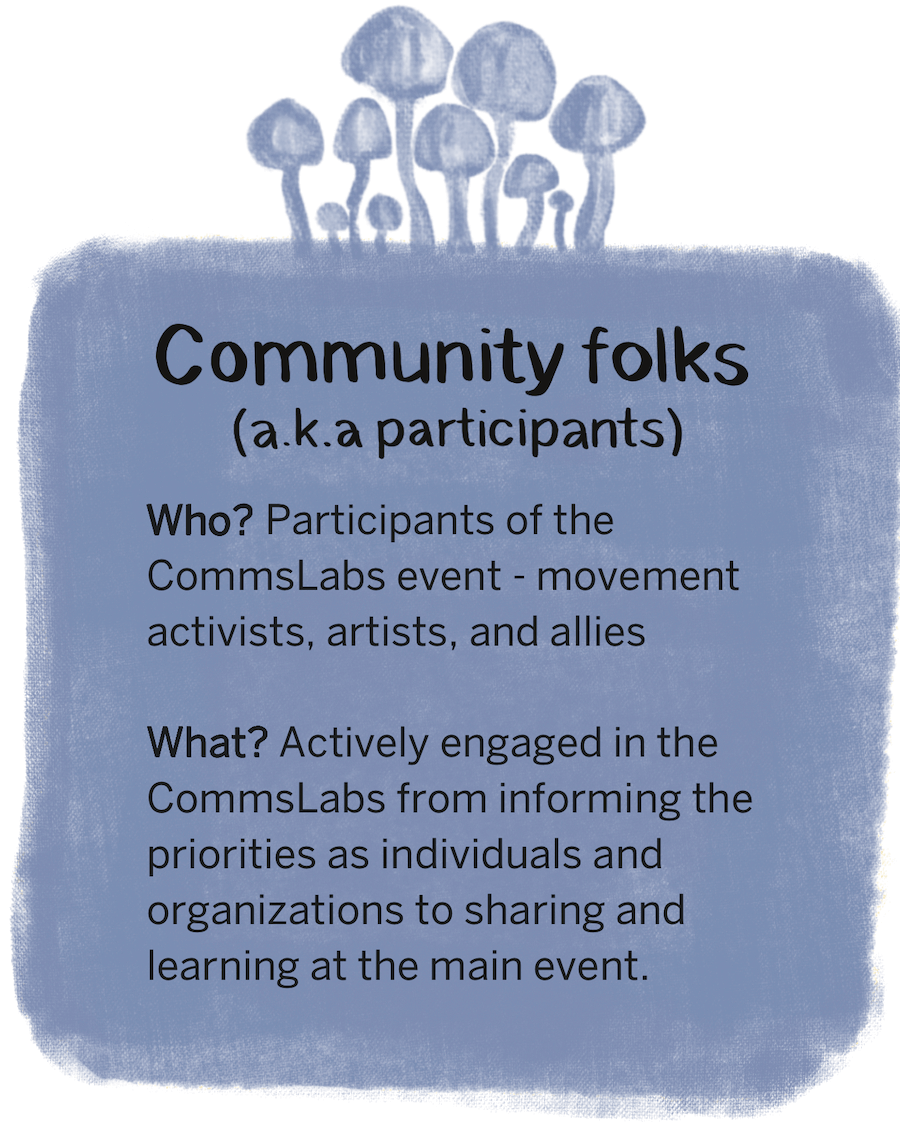
Participants in the CommsLabs event may vary across gatherings, but will likely include Astraea's grantee partners as well as other LGBTQI movement allies and activists. These individuals engage with Astraea and local hosts before the event to articulate their goals and expectations. They may also be invited to join the Activist Advisory Board, collaborating with the Coordination Team on program development, logistics, and safety, thus ensuring the event aligns with regional strengths and priorities. For those unable to join the Advisory Board, surveys, one-on-one, or group sessions may be held to gather their input and suggestions. Co-Design sessions in advance of the CommsLabs are another time to bring a broader group of participants together (though a smaller group than the main event) to inform the priorities, themes, and design of the CommsLabs.
Additionally, all participants have the opportunity to propose and lead sessions, taking on roles as facilitators or trainers, through a call for proposals or application process. This collaborative and inclusive approach enables participants to contribute their expertise and perspectives, fostering a dynamic and responsive event environment.
Activist Advisory Board
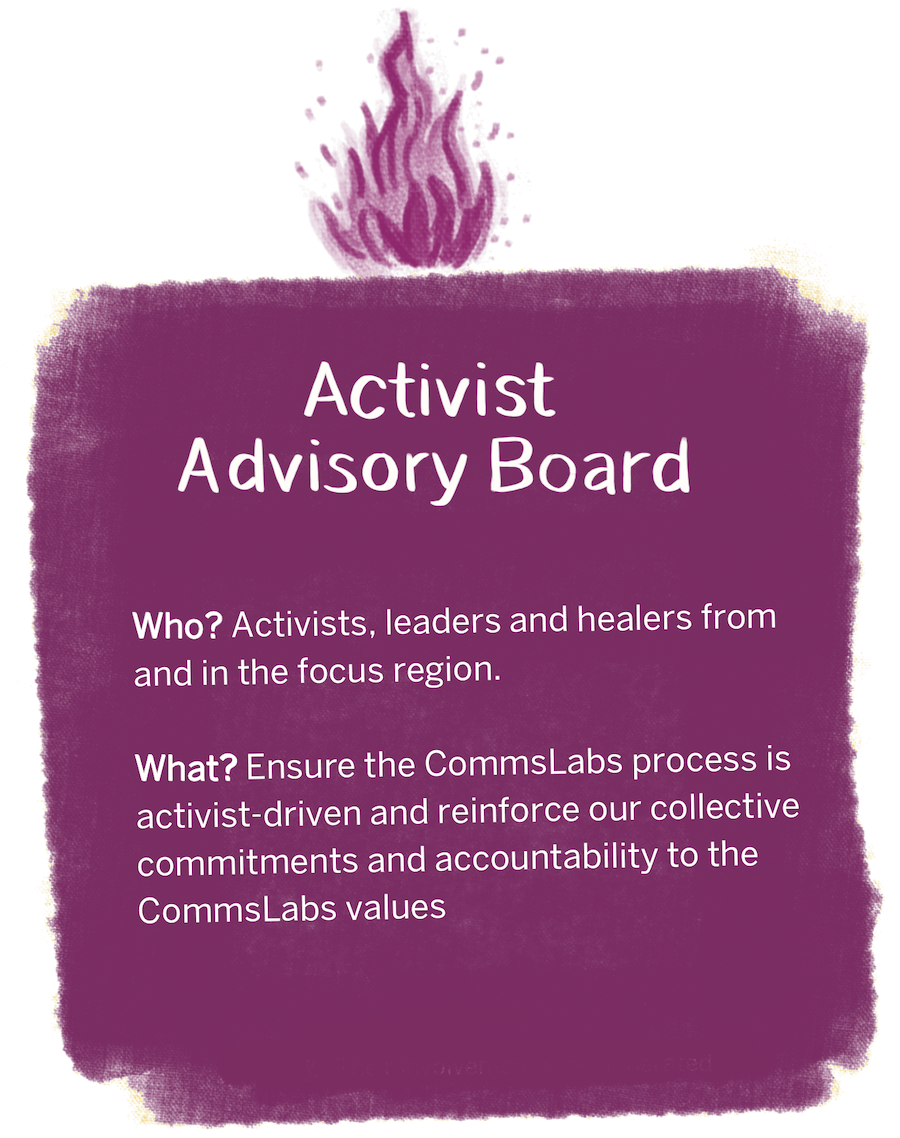
The Activist Advisory Board (AAB) comprises activists, leaders, and healers from the region who are actively involved in the LGBTQI movement within their local communities. This is a remunerated role requiring significant engagement in both the planning and execution of the event to ensure it reflects the movement's priorities and effectively serves participants during and beyond the CommsLabs.
Before the event, Activist Advisory Board members collaborate in a Co-Design process with community members and the Coordination Team. They play a vital role ensuring the event is grounded in the local context, strengths and needs, and hold the coordination team accountable. This involves virtual planning meetings, regular email and instant messaging (chat) communication, providing feedback on assessments, and reviewing calls for trainers. They help shape the program design, session development, and security protocols ensuring the event is led by activists strengths and priorities and serve as liaisons to other participants. During the event, Activist Advisory Board members actively participate and meet daily with the coordination team and facilitators to adjust the agenda to best meet the evolving needs of participants. They may also play specific roles during the event to provide additional support to participants and monitor overall feel of the event and wellbeing of participants to ensure it adapts to meet the groups priorities. After the event, they engage in post-event evaluations and debriefing, ensuring continuous improvement and responsiveness to the community's needs.
Coordination Team
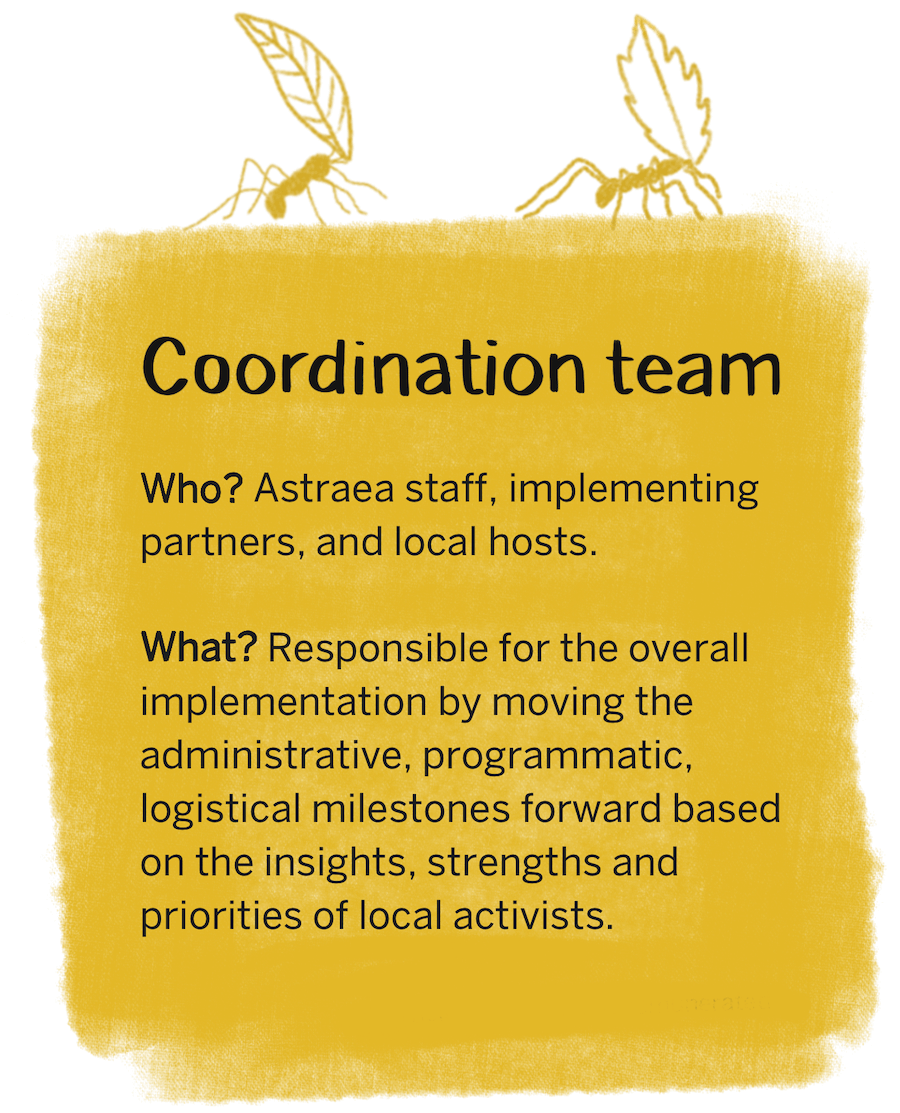
The Coordination Team serves as the core organizing group throughout the CommsLabs process. This team includes the implementing partners (APC and RAD, for example), Astraea team members, and local implementers (such as local host organizations). The Coordination Team steers and maintains the infrastructure relevant platforms used for coordination. Their main role is to link and ensure that all programmatic, administrative, budgetary, and logistics milestones are on track, overseeing the Co-Design and implementation process, which includes the overall agenda, building on the priorities, and engaging with CommsLabs participants.
Additionally, the Coordination Team is responsible for program design by sharing synthesized recommendations from CommsLabs feedback, engaging with various stakeholders to refine program content, inviting session proposals, coordinating session facilitators, and supporting facilitators in developing relevant content under the guidance of Activist Advisory Board. They also play a critical role in maintaining documentation and communication by co-designing documentation goals and implementing the documentation plan. During the main event, the Coordination Team works behind the scenes to ensure all participants are supported during the informal and formal aspects of the event and able to show up as their full selves.
Local hosts
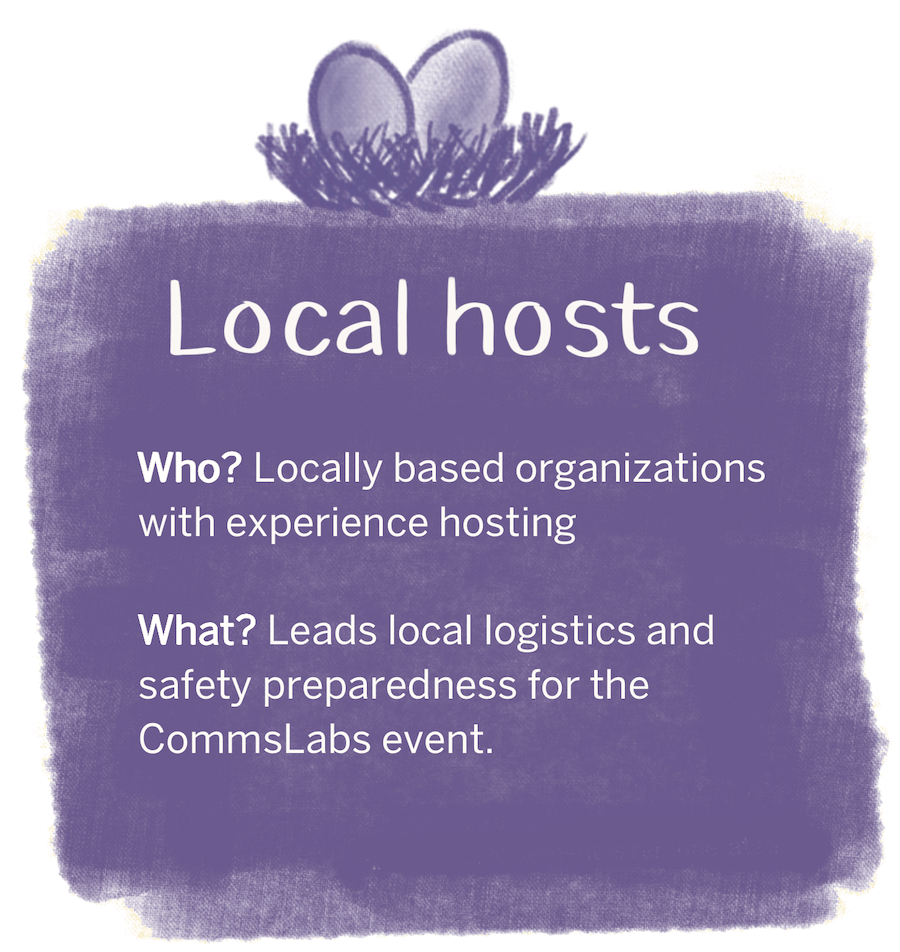
The Local Logistics or Local Host for an event are typically activist organizations based in movement in the event country. They are onboarded approximately six months before the event and play a crucial role in ensuring all logistical arrangements are organized. Their responsibilities often include: local logistics, such as space planning, registration, accommodation, travel, meals, ground transportation, childcare for folks traveling with children, audiovisual needs, supplies, session scheduling, and site visits. These tasks require close collaboration with the Coordination Team, session facilitators, and participants. Specific duties are distributed among individuals, with local host organizations focusing on local logistics coordination, while Astraea handles contract procurement and international travel coordination.
Additionally, Logistic Partners/Local Hosts support outreach to locally-based allied organizations and guest facilitators. This outreach ensures a broad and diverse participation, enriching the event with various perspectives and expertise. By managing these logistics and outreach efforts, the Local Host organizations help create a seamless and well-organized event environment that meets the needs of all participants.
Lead facilitators (a.k.a masters of ceremony)
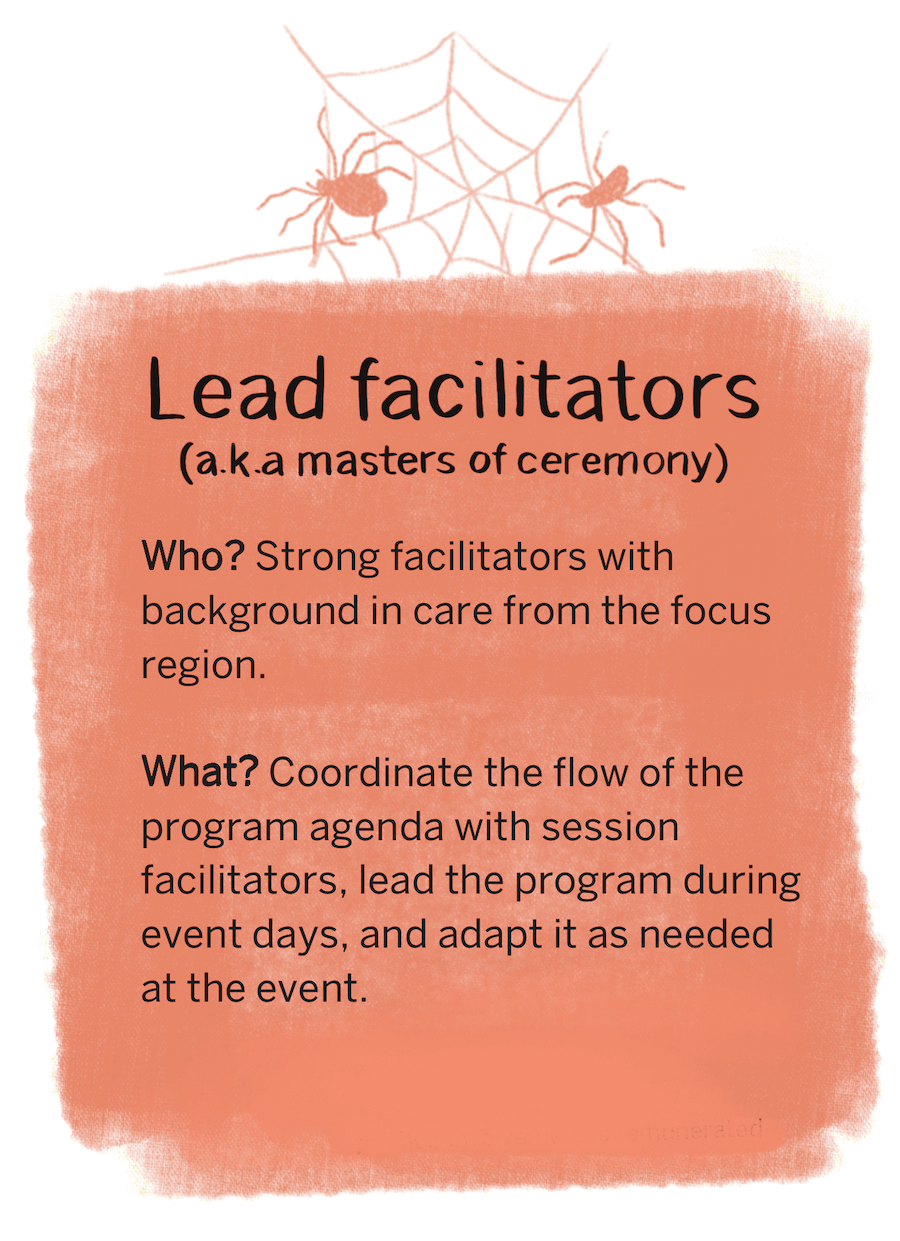
Lead facilitators, also known as Masters of Ceremony or MCs, are responsible for setting the tone for the event and leading the overall event program during the CommsLabs. They should be based in the region where the event is held. They are onboarded simultaneously with participants through a call for proposals and selection process. Their primary role is to coordinate session facilitators, weaving together common threads, interests, and ideas. They lead the team of facilitators and trainers, co-designing the event agenda with the coordination team. With a ratio of approximately three lead facilitators for every fifty participants, they ensure that all sessions run smoothly and that the event is cohesive and impactful. We highly recommend that this team includes activists with backgrounds in healing and care to ensure this practice is embedded throughout the event.
Lead facilitators oversee all aspects of the event, coordinating session facilitators and ensuring a seamless flow of activities. They act as bridges, connecting various participants and stakeholders, and engage deeply with the Activist Advisory Board. Their responsibilities include bringing together similar ideas and interests, fostering collaboration, and guiding the overall direction of the event. By maintaining strong connections with everyone involved, lead facilitators help create an engaging and dynamic environment that enhances the event's success.
Session facilitators
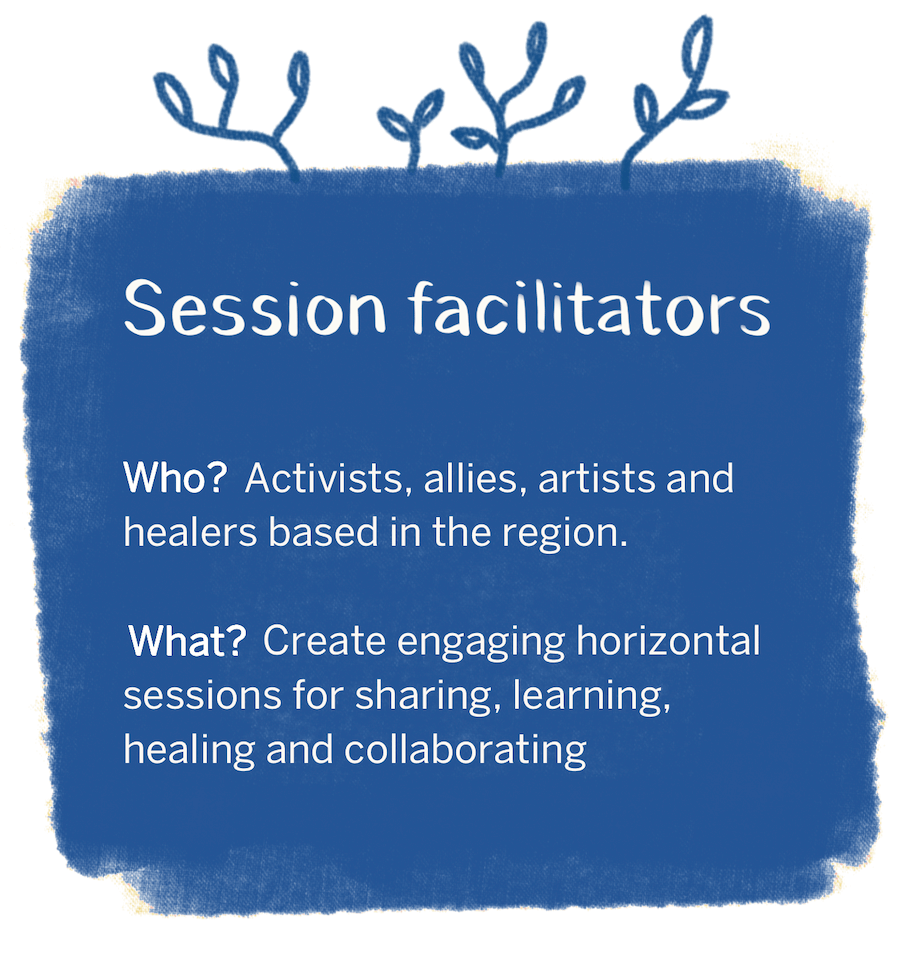
Session facilitators are location-based trainers, including activist trainers who are part of the grantee partner community, and they actively participate in the CommsLabs event. With an approximate ratio of ten facilitators per fifty participants, their role is crucial in ensuring the event's success. Their primary tasks involve upholding Astraea’s social justice values within the CommsLabs, building the media, communications, and technology capacity of LGBTQI activists in the region, and closely collaborating with the CommsLabs Coordination Team and event facilitators.
These facilitators are responsible for creating a supportive and inclusive environment that aligns with Astraea's mission. By working hand-in-hand with the Coordination Team, they help design and implement sessions that meet the participants' needs and foster skill development. Through their efforts, they ensure that the event runs smoothly and that the goals of the CommsLabs are effectively achieved, contributing to the growth and empowerment of the LGBTQI community in the region.
Documenters, designers & illustrators
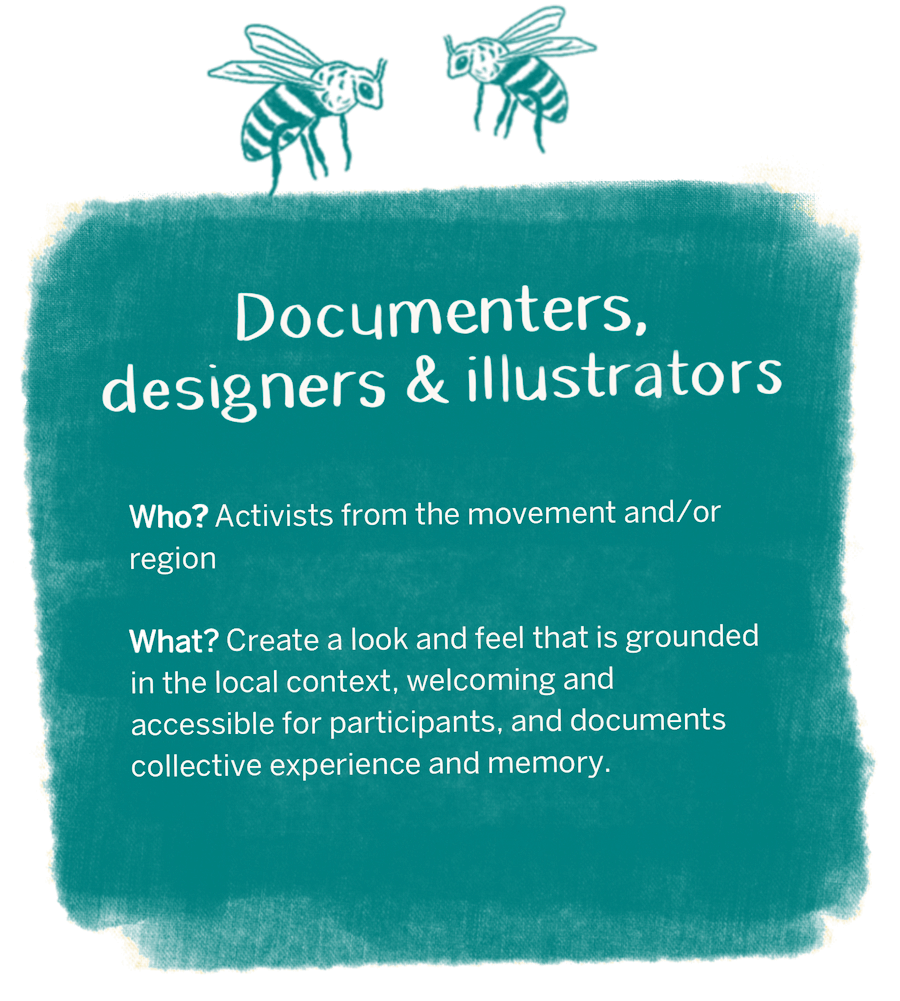
Documenters, designers, and illustrators are collaborators from the region and community, though they may be hired externally if the necessary expertise is not available within the existing network or grantee partnerships. Documenters are responsible for textual or visual note-taking during the CommsLabs main event, often producing outputs as illustrations. This documentation serves multiple purposes, including informing event evaluations, storytelling, and creating collective memories.
Designers and illustrators focus on developing the visual language for various materials such as the website, goodie bags, communication outreach, messaging, and reporting.
These roles are onboarded or hired simultaneously with participants, facilitators, and lead facilitators through a call for proposals, followed by a selection process and contracting. Their main task is to create content that supports outreach efforts, build a shared knowledge and experience base, and contribute to the collective memory of the event.
Translators
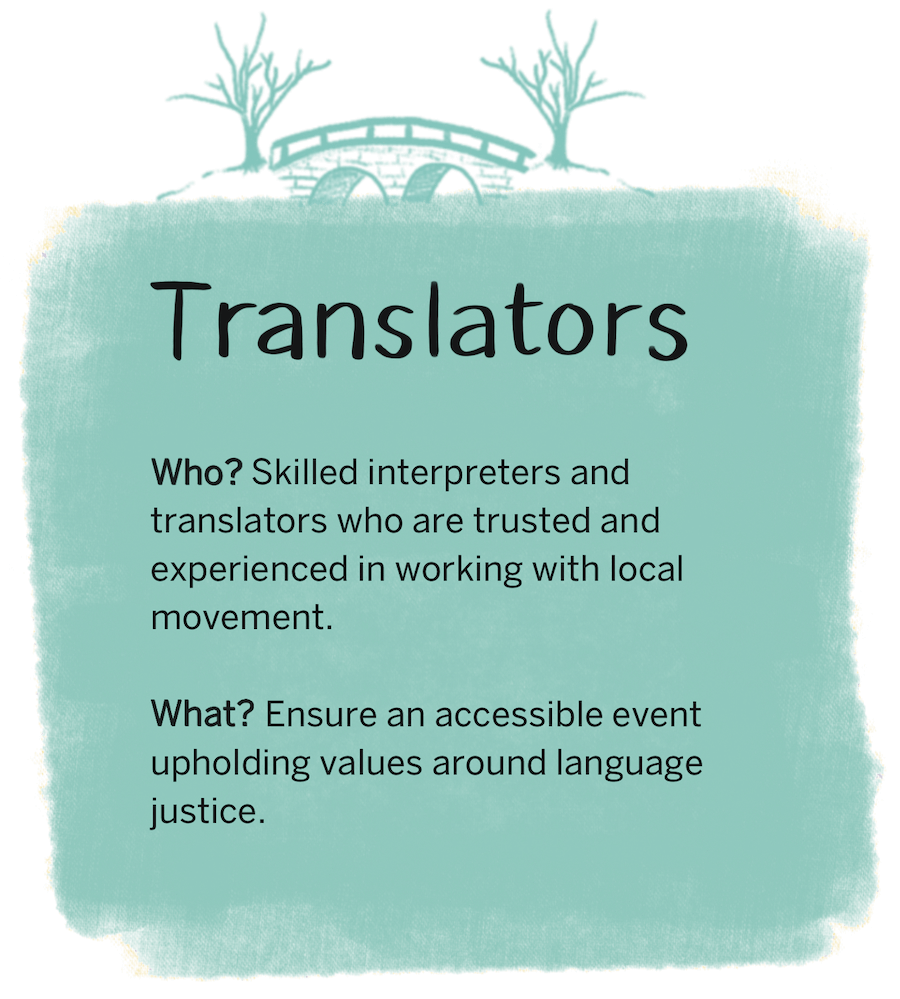
Translators are collaborators from the region or community, hired externally if the necessary expertise is not available within the existing network or grantee partnerships. They participate in online meetings with the Activist Advisory Board, facilitators, lead facilitators, and in onboarding/orientation sessions with participants prior to the main event. Additionally, they provide live on-site interpretation during co-design sessions and the main event through dedicated booths and headsets. Onboarded simultaneously with the Activist Advisory Board through a contracting process, translators play a crucial role in ensuring meaningful and equal access to the CommsLabs, upholding Language Justice principles.
Roles in context
This ecosystem of roles distributes tasks in the planning and design of CommsLabs, as well as in the governance of infrastructure, nurturing of community engagement and learning building. Learn more in roles in context.

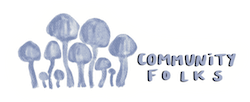
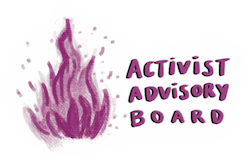
_0.png)

